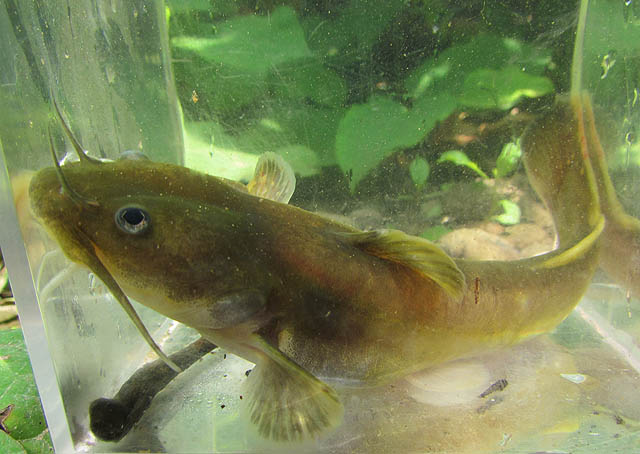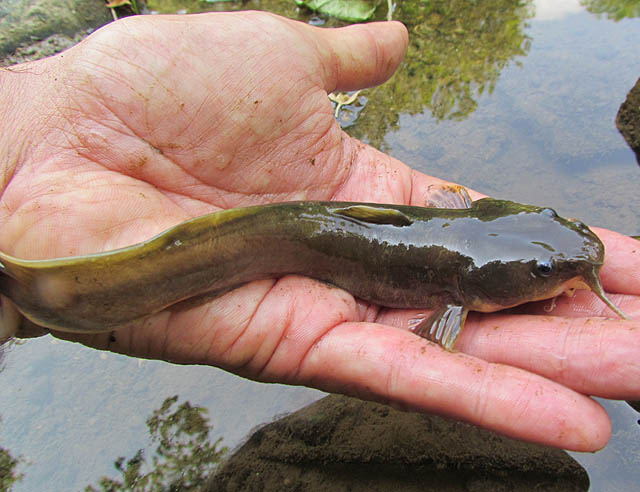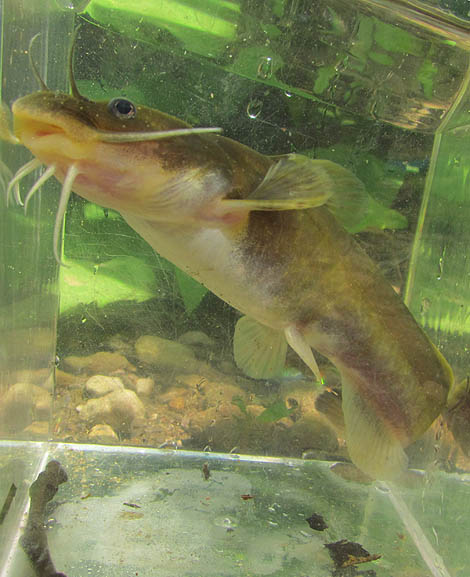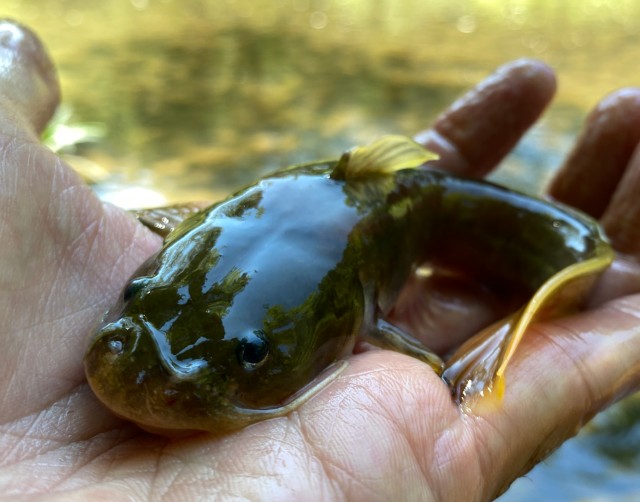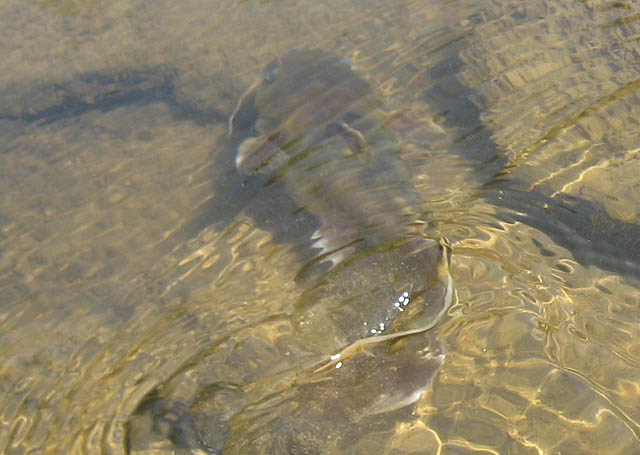The Stonecat Madtom is the largest species in the group of catfishes known as madtoms. They are the most common of six species of madtoms found in Ohio.
They are primarily a species found in medium to large rivers in areas with moderately fast current and large boulders and slabs. The Stonecat received its name because of its tendency to hide beneath flat rocks.
They spend the day hidden and come out at night to feed. At night, stonecats emerge to feed on the many aquatic insects and crayfishes that also occupy these habitats.
Their flattened body allows them to wriggle beneath large, flat rocks to hide or to seek out food. Stonecats, like the other members of the catfish family, have barbels (whiskers) that are used to help them locate food.
Stonecat Madtoms serve as indicators of water quality. They are not present in highly polluted areas or areas with a large amount of siltation. Therefore they are a very valuable “indicator” species to humans.
For some unknown reason, these fish are also good indicators of Smallmouth Bass populations. It seems if there is a good population of Stonecat Madtoms in the area, there will also be a good number of Smallmouth Bass, which was definitely the case on this outing.


